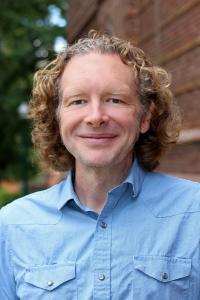Professor Richard York received his B.S. in Psychology from Southern Oregon State College in 1994, his M.S. in Environmental Studies from Bemidji State University in 1997, and his Ph.D. in Sociology from Washington State University in 2002. He joined the University of Oregon in 2002, and is now Professor of Sociology and Environmental Studies. He is an environmental sociologist whose work combines human ecology and political economy. He is both a theorist and an empirical researcher, who primarily uses quantitative methods.
One focus of his research is on how the structural characteristics of societies, including demographic, economic, and technological factors, influence levels of resource consumption and pollution emissions. Additionally, he examines the connections between animals and societies. He also studies the sociology, philosophy, and history of science.
- climate change, energy, and society
- critical human ecology
- philosophy, history, and sociology of science
- environmental sociology
- statistics
- research methods
York, Richard and Jordan Fox Besek. 2019. “Social Evolution and Environmental Context: Explanative Pluralism and Potentiality.” Sociological Inquiry 89(2): 317-338.
York, Richard and Shannon Elizabeth Bell. 2019. “Energy Transitions or Additions? Why a Transition from Fossil Fuels Requires More than the Growth of Renewable Energy.” Energy Research and Social Science 51: 40-43.
York, Richard. 2017. “Why Petroleum Did Not Save the Whales.” Socius: Sociological Research for a Dynamic World 3: DOI 10.1177/2378023117739217.
York, Richard and Stefano B. Longo. 2017. “Animals in the World: A Materialist Approach to Sociological Animal Studies.” Journal of Sociology 53(1): 32-46.
York, Richard and Ryan Light. 2017. “Directional Asymmetry in Sociological Analyses.” Socius: Sociological Research for a Dynamic World 3: DOI 10.1177/2378023117697180.
York, Richard and Julius Alexander McGee. 2017. “Does Renewable Energy Development Decouple Economic Growth from CO2 Emissions?” Socius: Sociological Research for a Dynamic World 3: DOI 10.1177/2378023116689098.
Frederick H. Buttel Distinguished Contribution Award. 2017. Environmental Sociology Section of the American Sociological Association. “This award was founded to express appreciation when a person's life work is deemed extraordinarily meritorious.”
Distinguished Scholarship Award. 2015. Section on Animals and Society of the American Sociological Association. Received for “The Invisible Animal: Anthrozoology and Macrosociology,” co-authored with Philip Mancus.
Faculty Excellence Award. 2013. University of Oregon. Received for a “sustained record of distinction in research, teaching, and leadership.”
Thomas F. Herman Faculty Achievement Award for Distinguished Teaching. 2013. University of Oregon. The University’s highest teaching award, received for long-standing excellence in teaching.

